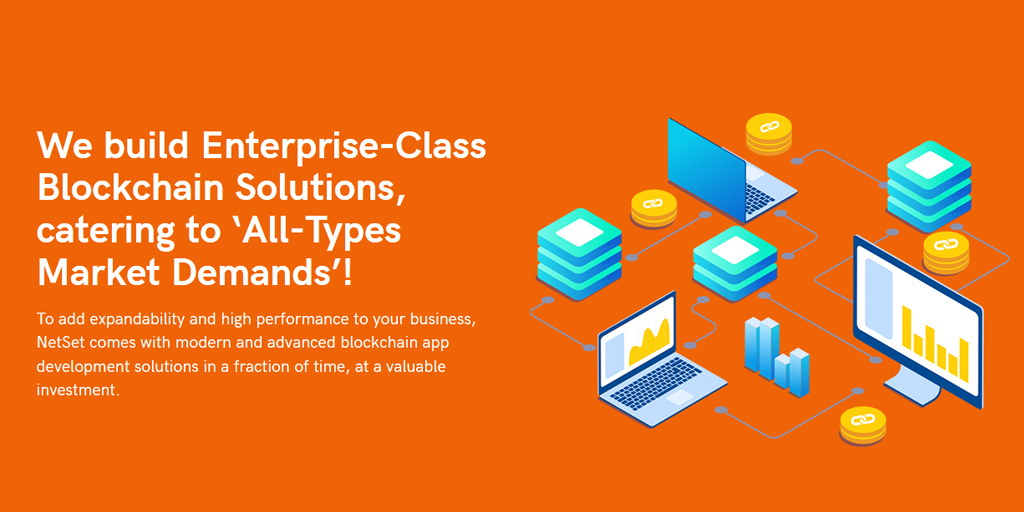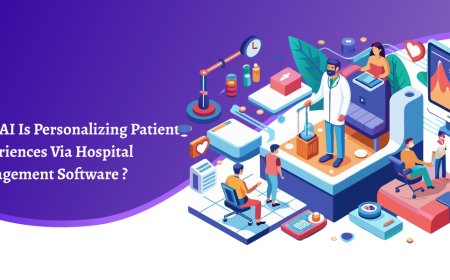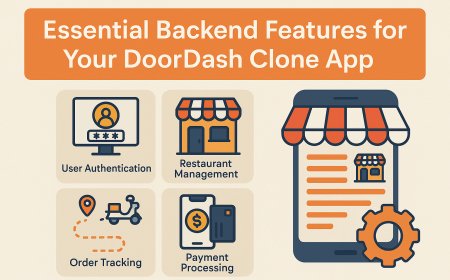How Voice Process Functions in a BPO Environment Today
Learn how voice process works in a modern BPO setup in 2025. Understand the types, benefits, tools, and technologies driving voice-based customer support today. Discover how "Voice Process Means in BPO 2025" and what it means for businesses and agents alike.

In the age of fast-paced customer service, companies are increasingly turning to Business Process Outsourcing (BPO) to simplify their operations. Among the numerous activities provided by BPO firms, voice processing remains a key activity. But what exactly is it, and how does it function in a contemporary BPO environment? Let's deep dive into the dynamics of voice processes, learn about their categories, realize their advantages, and discover how they are transforming in 2025.
What is Voice Process in the Context of BPO?
Voice Process Means in BPO 2025 employs oral communicationeither incoming or outgoingto communicate with customers, clients, or prospects. This encompasses customer support handling, telemarketing, surveys, technical support, and so on.
These processes are operated through phone calls by well-trained agents who either take calls (inbound) or dial them (outbound). With the development of technology, these processes are now commonly integrated with CRM tools, AI software, and call monitoring tools to improve quality and effectiveness.
What Are the Types of Voice Process in a BPO Setup?
Voice processes in BPO are typically of two types:
1. Inbound Voice Process
This kind of process includes taking calls from customers. These calls typically pertain to:
-
Customer service or support
-
Technical support
-
Order taking
-
Billings inquiry
-
Issue resolution or complaints
Agents in inbound processes are taught to respond to queries politely and efficiently. They are the face of brand communication; therefore, empathy and problem-solving are crucial.
2. Outbound Voice Process
Outbound voice processes include outbound calling to customers or prospective leads. Typical reasons include:
-
Telemarketing and sales
-
Surveys and feedback gathering
-
Appointment reminders
-
Debt collection or payment reminders
Outbound agents should be confident and convincing in their approach, with excellent product or service knowledge.
How Is Technology Increasing Voice Processes in 2025?
As the times change, Voice Process Means in BPO 2025 have also evolved further, thanks to advancements such as:
-
AI-Driven Call Routing: Calls are automatically routed to the most appropriate agent depending on the type of query, customer profile, or priority level.
-
Voice Analytics: Specialized software tools analyze interactions in real-time to track tone, sentiment, and compliance.
-
Connected CRMs: Agents can now view real-time customer details, enabling them to deliver personalized service.
-
Voice Bots and IVRs: While complex queries are still serviced by agents, simple tasks like checking account balances or booking appointments can be serviced by bots.
These developments guarantee shorter waiting times, improved customer satisfaction, and reduced operational expenses.
What Does a Typical Day in a Voice Process BPO Look Like?
A typical day in a voice process agent is comprised of:
-
Logging into Call Management Tools: They consist of predictive dialers, CRMs, and ticketing systems.
-
Going through Training or Briefings: The agents learn about daily campaigns, product updates, or compliance rules.
-
Processing Calls: Depending on the process (inbound or outbound), agents communicate with customers and close issues or sell services.
-
Capturing Call Results: Following every call, information is logged into the CRM or ticketing system for tracking and follow-up.
-
Examining Performance Metrics: Managers track agents using metrics such as AHT (Average Handle Time), FCR (First Call Resolution), and CSAT (Customer Satisfaction).
This framework guarantees productivity while maintaining high-quality services.
What Are the Most Significant Voice Process Benefits in 2025?
Knowing the advantages of voice process in BPOs can make it easier for companies to determine if they should outsource:
1. Real-Time Human Contact
Regardless of the increased popularity of chatbots, a lot of customers continue to prefer talking to a human for immediate or sensitive concerns. A human voice is better suited to instill confidence and loyalty.
2. Cost Efficiency for Companies
By outsourcing voice processes, companies reduce the cost of hiring, training, infrastructure, and technology.
3. Scalability
Want to take in more calls during the holiday season or a product launch? Voice processes can be easily increased or decreased based on need.
4. Access to Skilled Agents
BPOs invest heavily in training agents in accent neutralization, product knowledge, and soft skills.
5. 24/7 Support
Many voice process setups operate around the clock, offering customers help when they need it most.
What Are the Common Challenges in Voice Process Operations?
While beneficial, voice processes also come with their challenges:
-
Language and Accent Barriers: Especially in international processes, understanding accents and speaking is crucial.
-
Stress and Burnout: Continuous talking and handling complaints can be mentally taxing for agents.
-
High Attrition Rates: Voice process jobs tend to have high turnover rates, impacting continuity and quality of service.
-
Call Quality Issues: Technical issues or poor connectivity may cause disconnection.
Yet, Voice Process Means in BPO 2025 also suggests better training programs and mental health programs to combat the issues mentioned above.
How Are Companies Measuring Success in Voice Process?
Voice process success is monitored through metrics such as:
-
Average Handling Time (AHT)
-
Customer Satisfaction Score (CSAT)
-
First Call Resolution (FCR)
-
Net Promoter Score (NPS)
-
Agent Utilization Rates
BPOs now use real-time dashboards and automated feedback collection to monitor and improve these KPIs regularly.
What Skills Are Required to Succeed in a Voice Process Role?
To thrive in this field, an agent must possess:
-
Excellent Communication Skills
-
Patience and Empathy
-
Problem-Solving Ability
-
Multitasking Skills
-
Technical Know-How of Call Tools
In 2025, many BPOs will also require digital literacy as agents need to use multiple platforms during calls.
Frequently Asked Questions
Q1: Is voice process relevant in 2025?
Yes, despite the growing popularity of chat and email support, voice is still the most immediate and chosen means of customer communication for pressing and sensitive concerns.
Q2: What does "Voice Process Means in BPO 2025" mean nowadays?
It means a tech-powered, human-oriented customer support process utilizing voice calls to boost user experience and business effectiveness.
Q3: Can voice processing be fully automated?
Not completely. Though both basic and complex processes are being managed by bots, it is still dependent on human intuition and emotional intelligence.
Q4: Which sectors employ voice processes the most?
Telecom, e-commerce, BFSI (Banking, Financial Services, and Insurance), healthcare, and travel are the largest consumers of BPO voice-based services.
Final Words-
Voice process in BPO isn't old-fashioned at allit's getting smarter and more intelligent each year. Whether it's through AI-powered call routing or voice analytics, the process remains a mainstay of customer experience. So, when we ponder what Voice Process Means in BPO 2025, the answer is clear: it means mashing up human empathy with smart systems to provide consistent, quality interactions that businesses can rely on.










































